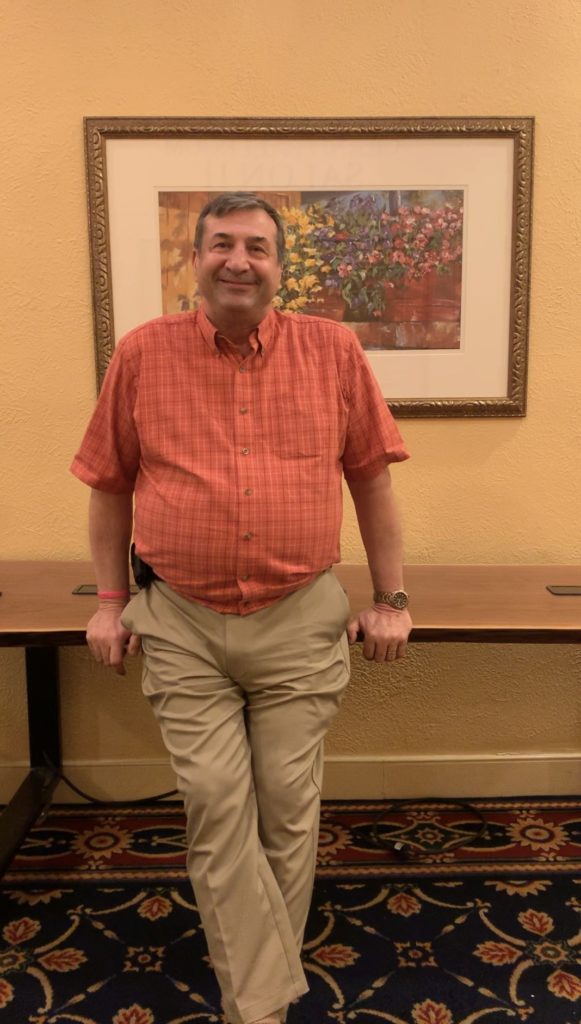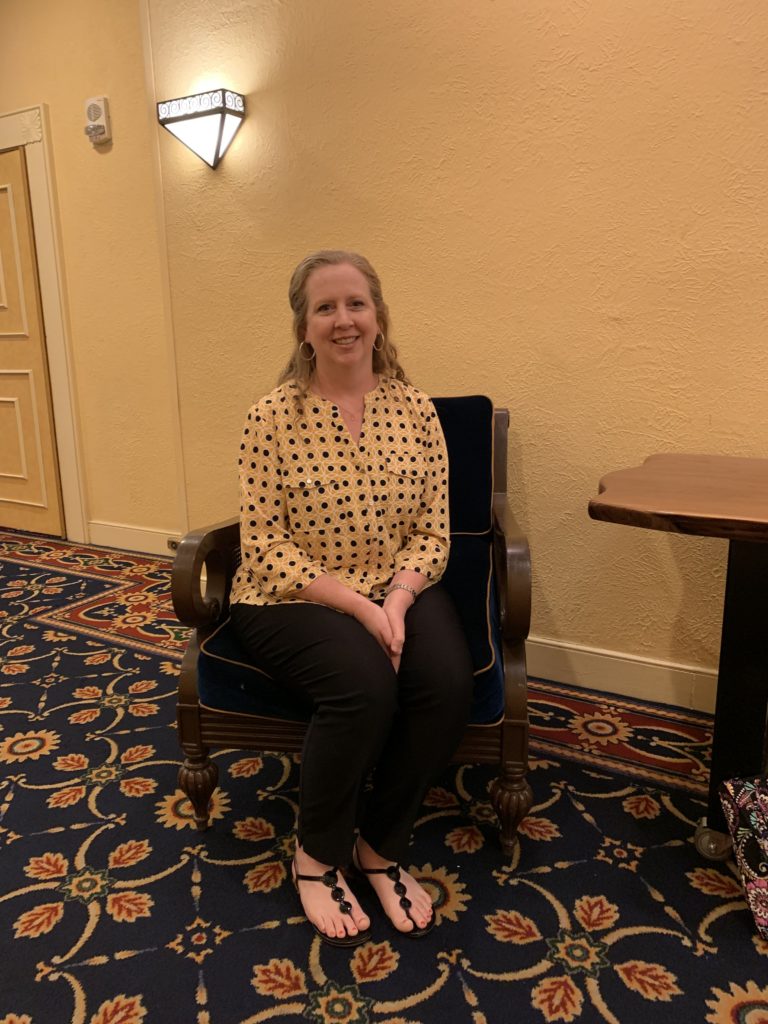STAAR Project: States Build Partnerships to Address Violence Against Women
How can states, and the communities they serve, help prevent domestic violence, dating violence, sexual assault and stalking? That’s a question Dale Gilbert, Amy Baynes, and many others who work on these issues ask every day. Gilbert is the Senior Planner for the Maine Department of Public Safety; Baynes is Program Manager for the Office of Criminal Justice Programs for the state of Tennessee. Both participated in the recent Joint Meeting of State and U.S. Territory grant administrators of the federal Violence Against Women Act’s STOP Formula Grants Program. The Joint Meeting was held between April 29-May 1, 2019, in Albuquerque, New Mexico.
Through its STAAR Project, ALSO is the Office on Violence Against Women’s comprehensive technical assistance provider for the STOP Program, which offers guidance to all 56 states and U.S. territory governmental agencies that receive STOP VAWA funds. Each of the 56 agencies is responsible for establishing a statewide plan for the STOP Program, and for making subawards for the purpose of strengthening law enforcement, prosecution, courts, and victim service responses.
STOP grant administrators play a vital role in funding and responding to the needs of people and communities that often struggle to provide domestic violence and sexual assault services.
“STOP grantees from around the country are working toward increased victim safety, offender accountability, and systems enhancements,” says Mary Seighman, ALSO’s Director of Policy and Justice Initiatives. “This meeting was an opportunity for grantees to focus on key issues and learn from each other.”
One of the challenges his state faces, Gilbert says, is reaching people in more remote communities who may not have access to the same services as people in more populous communities.
In Maine, for example, he says that the bulk of locations served by the tribal coalition are three to four hours away from the state office in Augusta.
 Dale Gilbert, Senior Planner for the Maine Department of Public Safety.
Dale Gilbert, Senior Planner for the Maine Department of Public Safety.
Part of the challenge, he adds is “understanding their protocols and traditions,” says Gilbert, who started in his job two months ago. “We need to sit down and take the time to understand where they are coming from. This happens with other populations too.”
One solution, he says, is planning services by scheduling meetings with members of the tribal coalition when they are in the state capital.
Gilbert says the recent meeting also reinforced the importance of forging partnerships on these issues. He reflects on a recent meeting he had with the Maine Coalition to End Domestic Violence. “If we can focus on the people who are doing this work, we can cut down the number of victims,” he says. “They are the experts.” The Albuquerque meeting was the first time that Dale sat down with Jane Root, Executive Director of the Wabanaki Women's Coalition in Maine, one of 18 tribal coalitions serving tribes, Alaska Native Villages, and Native communities. Together, he and the tribal coalition director drafted a letter to the tribal governments located within the state of Maine, to introduce Dale to the tribes, and to invite tribal representatives to participate in the next STOP implementation planning process in Maine.
Being relatively new to STOP, Baynes says it was helpful to hear other grant administrators share their partnership experiences at the meeting -- for example, “we tried this in our community - and it worked. The relationships you build are also beneficial.”
 Amy Baynes, Program Manager for the Office of Criminal Justice Programs for the state of Tennessee
Amy Baynes, Program Manager for the Office of Criminal Justice Programs for the state of Tennessee
Baynes says that, in Tennessee, partnerships with organizations around the state have “been so important to our implementation team. We work with people from domestic violence shelters, attorneys from legal aid organizations, representatives of the law enforcement community, local government, and statewide and local nonprofits. These groups help us see things and learn about what we need to incorporate.”
This fall, the Office of Criminal Justice Programs in Tennessee will turn to its implementation team as it looks to develop its next implementation plan, which will be ready in two years.
Meanwhile, Baynes added that a session at the joint meeting on “Using Data for the Implementation Plan” showed her how states may be able to find data that is not presented in the U.S. Census. “This was the first time I heard someone say looking past traditional sources of information can help us do that.”
Baynes adds that the meeting helped her think about how to approach funding organizations through the culturally specific set aside that is part of the grant. “We ask, ‘What are we not addressing in certain communities, and how can we get there?,’” she says. “The key is to identify agencies that are already doing the work and expanding what they can do through STOP funding. There are groups that are trusted in the community, and we need to find them.”
“The meeting was a great opportunity to sit and talk about each other’s issues,” Gilbert adds. “It gave me a chance to see where we are at and where we need to go. The biggest thing of all is knowing there are people I can brainstorm with - peers who can say to each other ‘here are our pitfalls, here are our successes.’”
RECAP:
The Joint Meeting of State and U.S. Territory grant administrators of the federal Violence Against Women Act’s STOP Formula Grants Program was held between April 29-May 1, 2019, in Albuquerque, New Mexico.
“STOP grantees from around the country are working toward increased victim safety, offender accountability, and systems enhancements,” says Mary Seighman, ALSO’s Director of Policy and Justice Initiatives. “This meeting was an opportunity for grantees to focus on key issues and learn from each other.”
“The meeting was a great opportunity to sit and talk about each other’s issues,” said Dale Gilbert, the Senior Planner for the Maine Department of Public Safety . “It gave me a chance to see where we are at and where we need to go. The biggest thing of all is knowing there are people I can brainstorm with - peers who can say to each other ‘here are our pitfalls, here are our successes.’”
ALSO is an organization committed to ending violence in homes and communities nationwide. Your contribution will help us live out our mission to develop, promote and implement model programs in order to build a movement for peace and safety in the coming year.
With your support, we will:
-
Continue providing jobs for in-risk youth through our 10-10-10 job training program.
-
Provide bystander intervention training for youth and community members, giving people the skills to know how to increase safety in high risk situations.
-
Explore and reveal the relationship between intimate partner and community violence to create programming that will reduce both.

